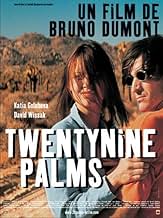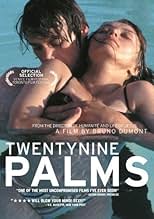David, un fotografo americano, e la sua ragazza russa Katia stanno cercando dei luoghi per fare fotografie. Durante il giorno guidano attraverso alcuni dei paesaggi desertici più selvaggi e ... Leggi tuttoDavid, un fotografo americano, e la sua ragazza russa Katia stanno cercando dei luoghi per fare fotografie. Durante il giorno guidano attraverso alcuni dei paesaggi desertici più selvaggi e bizzarri, ma la loro fortuna inizia a esaurirsi.David, un fotografo americano, e la sua ragazza russa Katia stanno cercando dei luoghi per fare fotografie. Durante il giorno guidano attraverso alcuni dei paesaggi desertici più selvaggi e bizzarri, ma la loro fortuna inizia a esaurirsi.






















